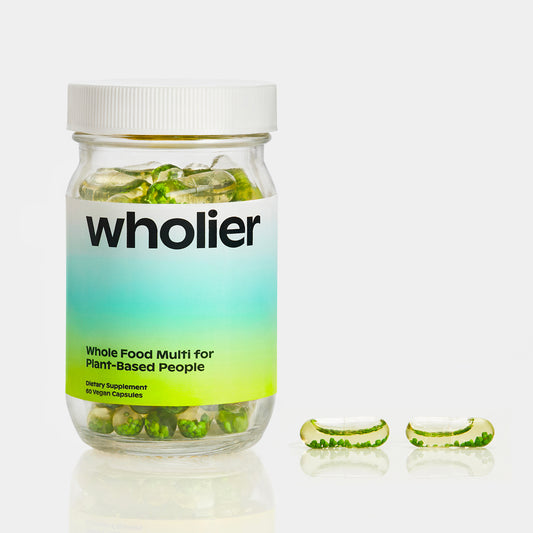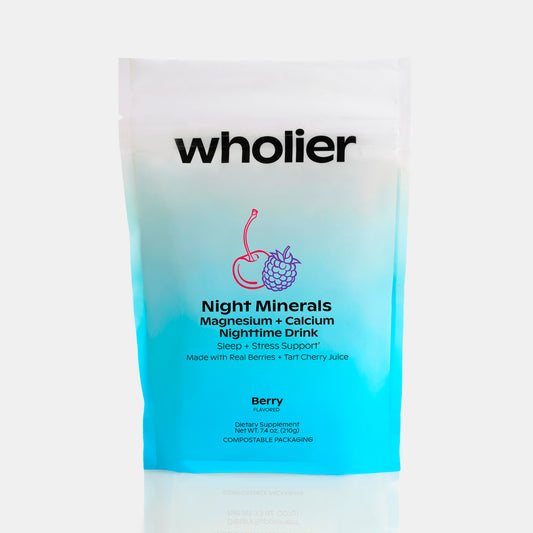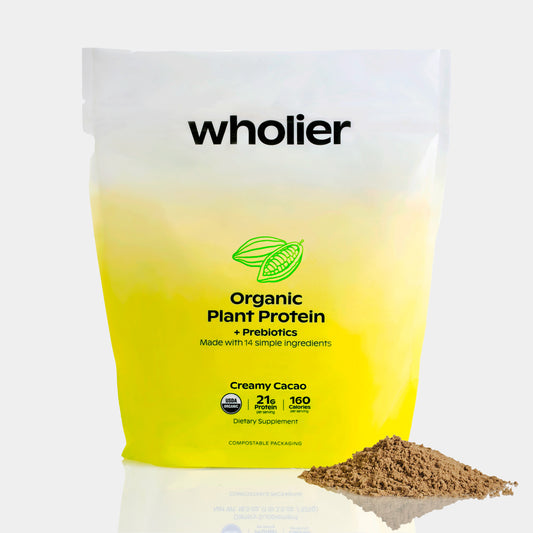
Watch Out for These Nutrient Combinations When Shopping for a Multivitamin
Multivitamins are the OG of supplementation filled with all the good things you might not be getting enough of in your daily diet. However, not all multivitamins are created equal and not all nutrients should be taken together. In fact, certain vitamins and minerals perform better when taken with or without other nutrients. We know this can be confusing, so here are some best practices to follow to ensure you get maximum absorption and reap the feel-good rewards.
Nutrient combinations to avoid
There are specific nutrients that our body absorbs more efficiently when they are not taken with others. This is important when we are trying to correct deficiencies in the body or prevent imbalances. Here are some popular nutrient combinations to avoid.
Iron and Calcium
These two nutrients are commonly supplemented as many individuals of all ages are low, deficient or in need of a boost. Best practices recommend separating iron and calcium by at least 2 hours to maximize absorption (1). To make this easy, we recommend bookending your day with them; take iron in the morning and enjoy calcium at night. wholier makes this easy by adding calcium to their Night Minerals: Magnesium + Calcium. This pattern ensures you get the most from your supplements and support your body’s needs. Important to note, it isn’t just enough to spread out your vitamins, you also need to focus on your meals. In order to optimize absorption of iron from your food, do not consume dairy or take your calcium supplement with your leafy greens, beans or pulses.
Zinc and Copper
These trace minerals are having their moment in the sun as they both enhance immunity by boosting immune cells which may decrease the duration of illnesses. However, research shows taking high doses of Zinc (which many people do when they start to feel sick) can inhibit the absorption of copper, which can lead to poor health outcomes including fatigue, decreased immunity, impaired memory, pale skin and even hair loss (2).
What is important here is the ratio of Copper to Zinc. If your supplement contains both we recommend at least 2mg of copper for every 15mg of zinc to maintain the balance and promote optimal absorption and functionality. The Multi for Plant-Based People contains an optimal amount of zinc and leaves the copper component to your food since plant-based diets are rich in copper from nuts, seeds, mushrooms, leafy greens and dark chocolate.
Nutrient combinations that are perfect pairs
Just as some nutrients perform better apart, others allow for optimal absorption when taken together. When it comes to these perfect pairs, however, you don't need to take them at the exact same time. They just need to be consumed over the course of the same day.
Vitamin D + Calcium
One reason many people supplement with calcium is to strengthen their bones. Did you know that without adequate vitamin D, our bones do not absorb calcium as efficiently and therefore we aren’t meeting our nutritional goals (3). Since we get most of our vitamin D from the sun and from a few plant-based foods (mushrooms!), it's important to supplement with it daily (unless you're in the habit of sunbathing without clothes or sunscreen). We recommend at least 600-800 mg/day of vitamin D, which correlates with fewer fractures and less frequent falls. Ideally, vitamin D should be taken during the day (it comes from the sun after all) to prevent sleep disruption and to help you absorb calcium from your food throughout the day (4).
Vitamin D + Omega-3's
Vitamin D is a fat-soluble vitamin which means it doesn't dissolve in water and requires fat to help it move into your bloodstream. That's why we recommend taking vitamin D with a meal that contains fat from some of our favorite sources like avocado, olive oil, nuts, seeds, and of course any omega-3 fatty acids which help to fight inflammation (5).
Supplementing your diet with vitamins is an important part of a healthy lifestyle. However knowing what supplements to take and when to take them helps you feel your best, without wasting money on nutrients your body won’t absorb.
Sources:
(1) Cook JD, Dassenko SA, Whittaker P. Calcium supplementation: effect on iron absorption. Am J Clin Nutr. 1991;53(1):106-111. doi:10.1093/ajcn/53.1.106
(2) https://www.mountsinai.org/health-library/supplement/zinc
(3) Sunyecz JA. The use of calcium and vitamin D in the management of osteoporosis. Ther Clin Risk Manag. 2008;4(4):827-836. doi:10.2147/tcrm.s3552
(4) Bertisch SM, Sillau S, de Boer IH, Szklo M, Redline S. 25-Hydroxyvitamin D Concentration and Sleep Duration and Continuity: Multi-Ethnic Study of Atherosclerosis. Sleep. 2015;38(8):1305-1311. Published 2015 Aug 1. doi:10.5665/sleep.4914
(5) Mulligan GB, Licata A. Taking vitamin D with the largest meal improves absorption and results in higher serum levels of 25-hydroxyvitamin D. J Bone Miner Res. 2010;25(4):928-930. doi:10.1002/jbmr.67






